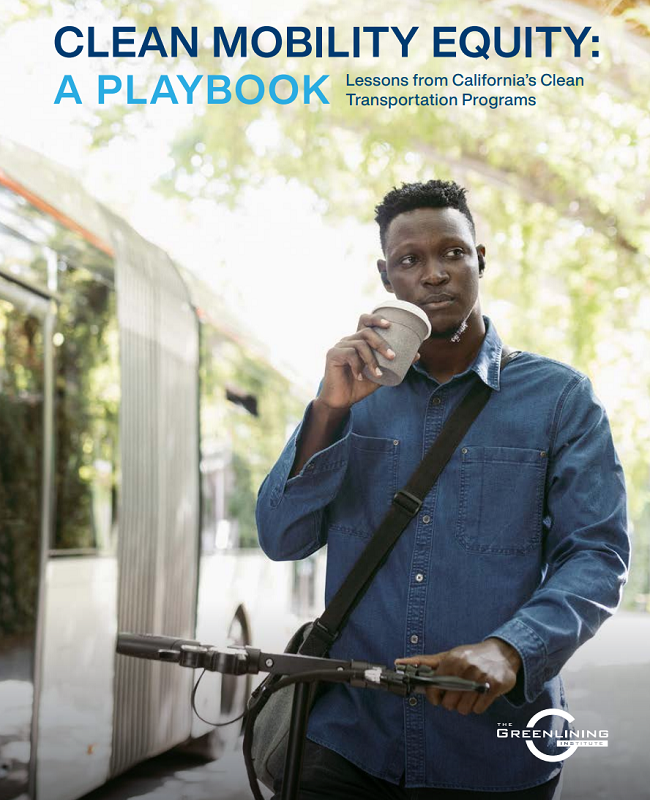California is a world leader in climate change policy and programs—and a key cornerstone of the state’s strategy has been decarbonizing the transportation sector. California’s investments in clean transportation programs have ballooned in a relatively short time, and include financial incentives for electric vehicle purchases, electric vehicle carsharing mobility hubs and community-driven clean mobility pilots. These programs range widely to meet various needs across urban, suburban and rural communities. Over time these programs have intentionally centered equity, prioritizing the needs of low-income communities of color. Clean mobility programs can not only help fight climate change and clean the air, they can improve mobility for residents of underserved communities, reduce traffic and dependence on cars, and be engines of economic empowerment that help reduce the racial wealth gap.
This report reviews California’s clean mobility equity programs, noting successes, pitfalls and areas for improvement. It serves as both a guide for California as we continue evolving our clean mobility programs to more meaningfully center equity and as a guide for other states and the federal government as they move to develop and implement clean transportation equity programs.
Preview the report here:
 Loading...
Loading...
More About this Resource
Publisher: Greenlining Institute
Date: March 31, 2021
Type: Research Reports
Countries: United States
States: California
